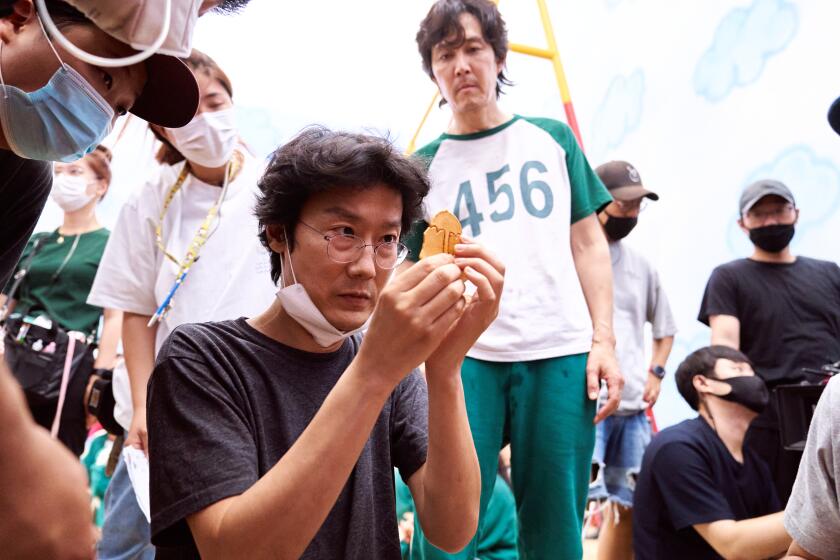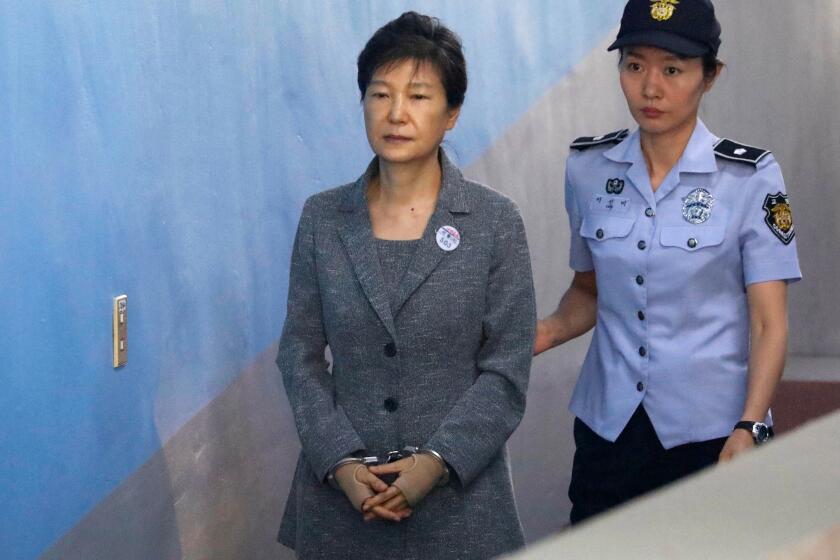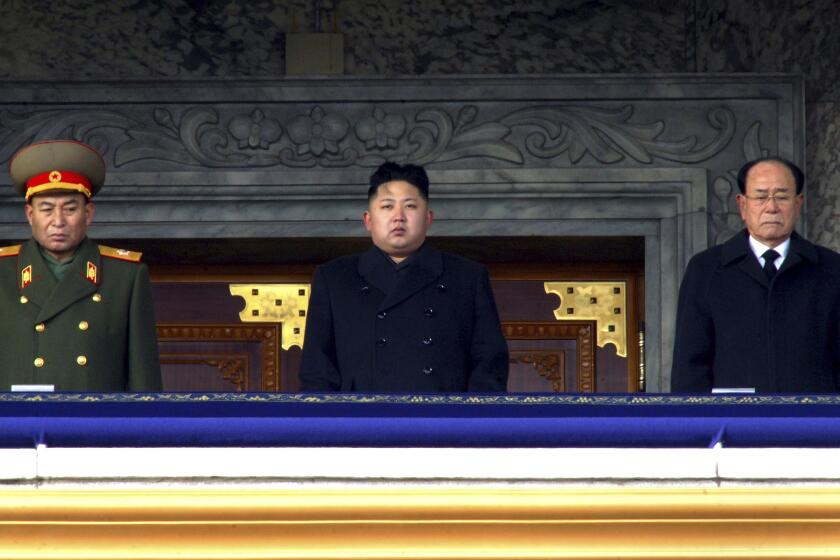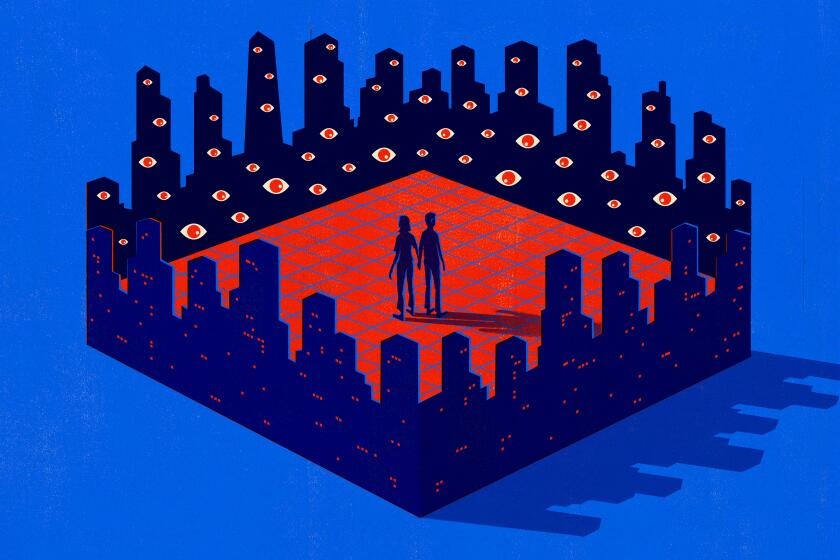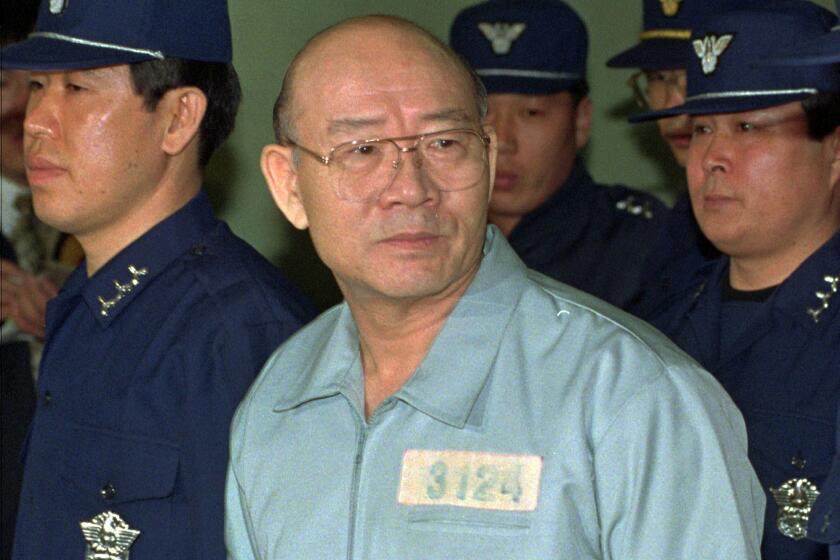
Victoria Kim
Follow Us
Victoria Kim is the former Seoul correspondent for the Los Angeles Times. During her time at the paper, she covered state and federal courts, worked on investigative projects and reported on Southern California’s Korean community. She has previously written for the Associated Press out of South Korea and West Africa, as well as for the Financial Times in New York. Kim was raised in Seoul and graduated from Harvard University with a degree in history.
Latest From This Author
South Korea has become a major exporter of culture. Its BTS, “Parasite” and now “Squid Game” have captured the world’s imagination and redefined how entertainment transcends borders.
While tens of thousands risk everything to flee North Korea, a few, having failed to adjust to the capitalist South, make a desperate journey back.
The impeachment of Park Geun-hye, after huge protests over corruption, marked the first time a South Korean president was legally removed from office.
North Korean leader Kim Jong Un reaches 10 years in power
Today’s young are born into a digitally interconnected reality where big data and artificial intelligence will shape everyday existence long before the children are old enough to protect their privacy or give consent.
A return to border and social restrictions could upend months of progress in countries such as Singapore, often a bellwether for the rest of Asia.
Chun Doo-hwan, former military strongman who crushed pro-democracy demonstrations in South Korea in 1980, dies at 90.
La popularidad de ‘Squid Game’ es inseparable de la crisis muy real de Corea del Sur, con una creciente deuda en los hogares, una enorme desigualdad y una débil red de seguridad social.
The popularity of “Squid Game” is inseparable from South Korea’s very real crisis of mounting household debt, gaping inequality and a weak social safety net.
La pandemia empujó a los pobres del mundo a una situación más grave, pero para algunos jóvenes lanzó carreras y mejoró las posibilidades de riqueza. Los destinos divergentes de los jóvenes adultos señalan el aumento de las desigualdades que la pandemia ha puesto de manifiesto en un mundo que se enfrenta a cambios drásticos.
